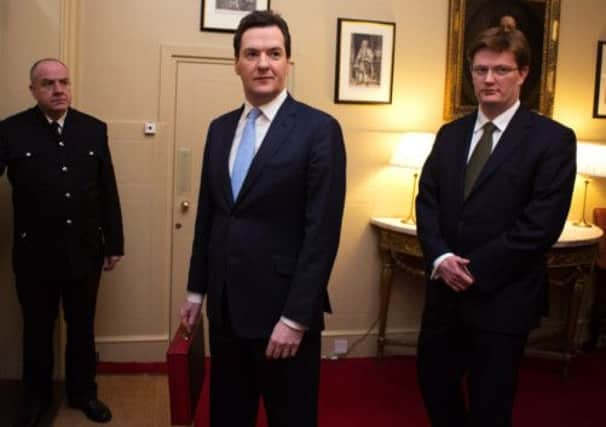David Maddox: Real welfare debate on hold


Britain underwent a conversion this Easter and not one which pleased the UK’s left-leaning, socially conscious churches. The overhaul of the welfare state – with the end of a range of benefits, to be replaced by the universal benefit – will radically change lives as well as save the Exchequer tens of billions of pounds it no longer has to spend.
There were two clear motives behind the reforms. The first was Work and Pensions Secretary Iain Duncan Smith’s zeal and good intentions in breaking the poverty trap. But the second was the need to cut public spending to get a handle on the UK’s deficit. The second motive is still very much on the minds of coalition ministers, which is why Chancellor George Osborne leapt on the Philpott case as another justification to cut welfare spending.
Advertisement
Hide AdAdvertisement
Hide AdHowever, despite the enormous changes which have taken place, there is a sense within parliament that the real debate on welfare spending has merely been put off until after the next election. While ministers can portray their benefit reforms as an attack on shirkers, the welfare budget is an easy target for a Tory-led government. The difficult question is over the demographic where much of the welfare budget is spent – pensioners.
Under the coalition, current pensioners have done well. They have a triple-lock guarantee on the state pension to increase, whatever the highest rate of inflation is, something those in work can only dream of. All their benefits, such as free bus passes, television licences, winter fuel payments and, north of the Border, the expensive free care for the elderly, have been protected.
Why is this? The answer is simple. Pensioners vote in large numbers and they vote for coalition parties as well as Labour. They are an increasing proportion of society and one which exercises huge political muscle. According to the 2012 fiscal year UK government spending figures, pensioners received £127.2 billion of the UK’s total £243.3bn welfare budget – more than half.
The coalition’s answer so far has been to attack the rights of those now working, in other words the ones hit hardest by the austerity measures on benefits and tax. Their retirement age has been raised and the new single-tier pension threatens to be a cut in their future salaries, something that will not affect current pensioners.
The hope is that this measure will be enough to stave off any attack on the benefits and support received by pensioners at the moment. But the feeling is that, just as housing benefit was getting out of control and was behind the need to introduce a welfare cap of £26,000 a year, then so too is the spending on pensioners.
The chances are that all three major parties will go into the next election promising to protect pensions and pensioner benefits, but if public spending is not under control by then, it could be a promise akin to the Lib Dems’ one to abolish tuition fees.